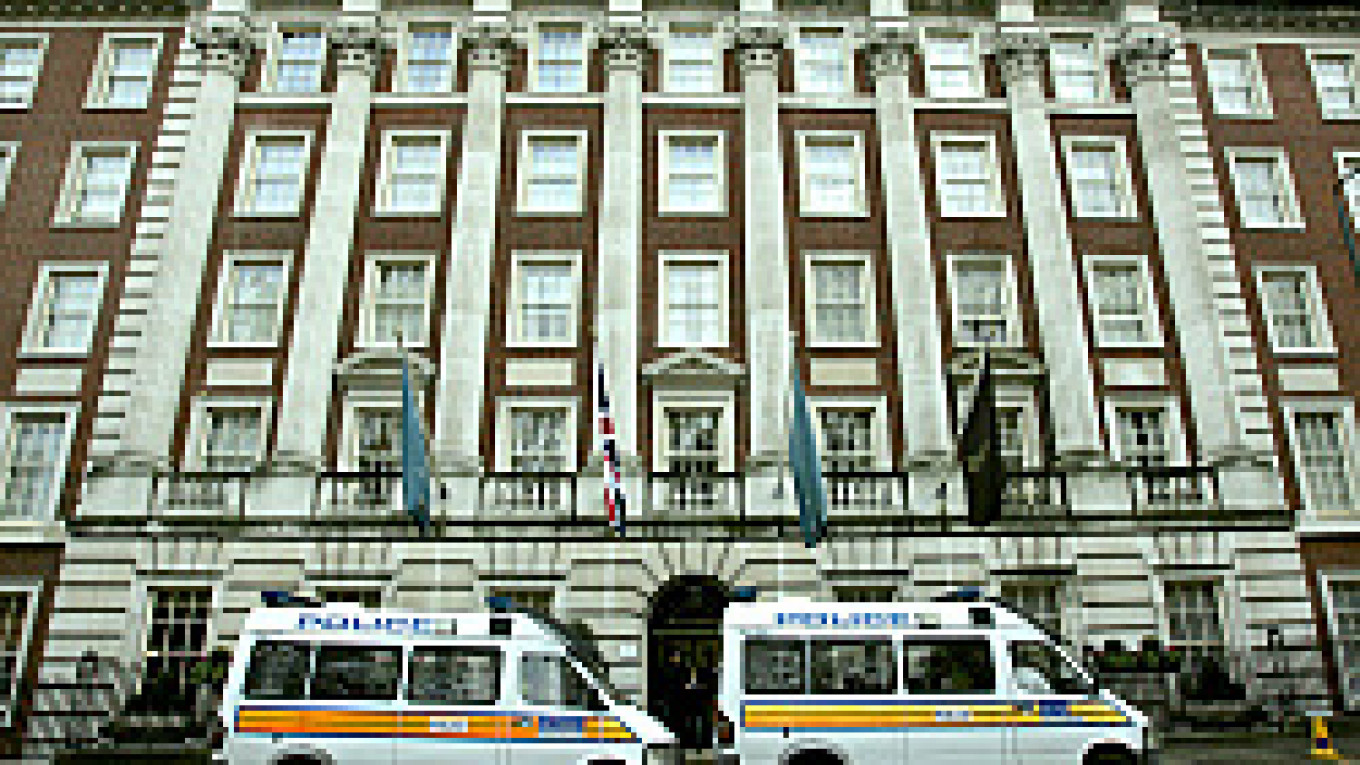The witness account in The Sunday Telegraph is the first to be made public, and provides new details on how the poison, a highly radioactive substance called polonium-210, might have been delivered.
On Sunday, British Foreign Secretary David Miliband said his country was "seriously considering all its options" in relation to the case.
Norberto Andrade, the head bartender at London's Millennium Hotel, said he believed he was deliberately distracted as he tried to serve a gin and tonic to the table where Litvinenko was sitting with Andrei Lugovoi, a Russian businessman and former security services agent, and two other Russians, Dmitry Kovtun and Vyacheslav Sokolenko, on Nov. 1.
Although he did not see it happen, Andrade told the newspaper he believed that at that moment the poison was sprayed into a pot of green tea on the table. He said investigators later told him that traces of the poison were found all over the table and floor and on a picture above where Litvinenko was sitting, leading him to conclude that the poison must have been sprayed.
"When I was delivering the gin and tonic to the table, I was obstructed," Andrade said, the newspaper reported. "I couldn't see what was happening, but it seemed very deliberate to create a distraction. It made it difficult to put the drink down.
"It was the only moment when the situation seemed unfriendly and something went on at that point," Andrade added.
Later, after clearing the table, Andrade said he noticed that the tea looked more yellow than usual and became "thicker -- it looked gooey."
Litvinenko, who had become an outspoken Kremlin critic, later fell ill and was taken to a London hospital. He died Nov. 23, and in a deathbed statement accused President Vladimir Putin of being behind his killing -- a claim Russia has denied.
Britain has sought to extradite Lugovoi to stand trial in the murder, but the Prosecutor General's Office formally refused to transfer him. Prime Minister Gordon Brown said Tuesday that Britain was considering ways to respond.
In an interview with the BBC on Sunday, Miliband said "a very serious crime" had been committed and that Britain would reveal its response "in due course."
"I don't want to say anything more about that, except that we are considering seriously all of our options," Miliband said, refusing to say what those options could be.
British officials are currently considering how to deal with Moscow's insistence that it will not allow Lugovoi to stand trial in London over the killing.
Last week, the British Foreign Office declined to speculate on whether it would expel Russian diplomats from London, but a spokesman said ministers would likely present potential options to Parliament.
A Message from The Moscow Times:
Dear readers,
We are facing unprecedented challenges. Russia's Prosecutor General's Office has designated The Moscow Times as an "undesirable" organization, criminalizing our work and putting our staff at risk of prosecution. This follows our earlier unjust labeling as a "foreign agent."
These actions are direct attempts to silence independent journalism in Russia. The authorities claim our work "discredits the decisions of the Russian leadership." We see things differently: we strive to provide accurate, unbiased reporting on Russia.
We, the journalists of The Moscow Times, refuse to be silenced. But to continue our work, we need your help.
Your support, no matter how small, makes a world of difference. If you can, please support us monthly starting from just $2. It's quick to set up, and every contribution makes a significant impact.
By supporting The Moscow Times, you're defending open, independent journalism in the face of repression. Thank you for standing with us.
Remind me later.


